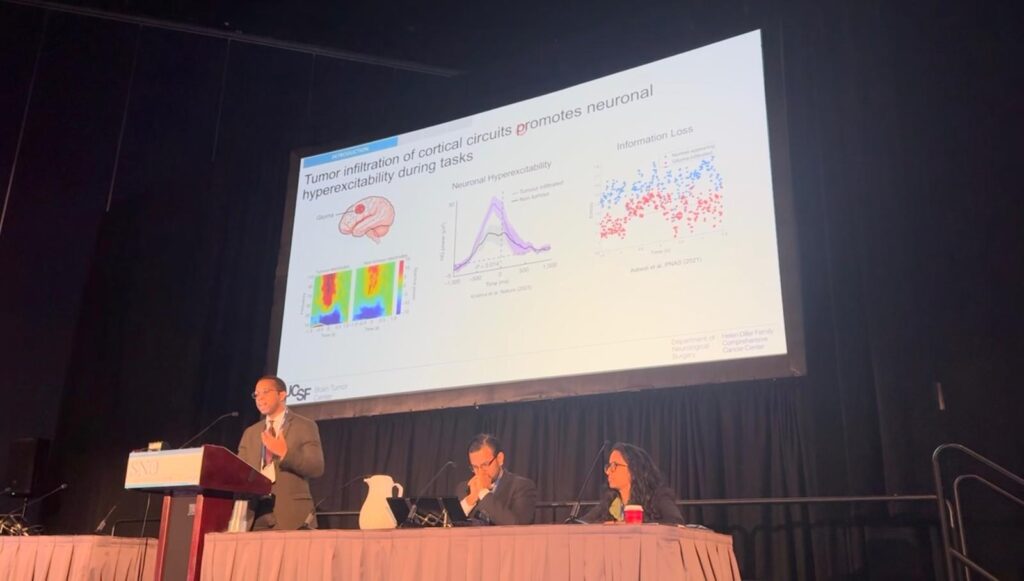At 34, Dr Andy Daniel is helping to chart new territory in brain surgery.
A postdoctoral fellow, Daniel was part of the research team behind Cirrus, an AI-powered brain mapping tool recently cleared by the Food and Drug Administration (FDA). Developed by Sora Neuroscience, Cirrus uses restingstate fMRI to map brain activity without requiring patients to perform tasks, a shift that promises faster, safer, and more inclusive surgical planning.
“Cirrus represents a real paradigm shift in brain mapping,” Daniel told St Lucia Times. “Because it uses AI-powered resting-state fMRI, patients don’t need to perform any tasks in the scanner. This makes the process safer, faster, and more inclusive.”
The technology, based on over a decade of research at Washington University in St Louis, allows for more confident surgical planning and extends brain mapping access to hospitals that may lack specialised teams.
But Daniel’s path to this moment began with far less certainty, marked not by cutting-edge tools but by financial barriers and a dream to study neuroscience with no clear way forward.

How the effort of fellow Saint Lucians changed
In 2010, Daniel graduated from Sir Arthur Lewis Community College (SALCC) with a dream of continuing his studies abroad. “My family didn’t have the resources to support international tuition or living expenses, and I hadn’t even considered the US as an option,” he recalled.
Yet, a chance opportunity arose through an initiative between the National Society of Black Engineers (NSBE) in the US and local non-profit RISE Saint Lucia. They were working to establish a scholarship pathway for academically strong SALCC graduates.
But what was meant to be a goodwill initiative quickly encountered political headwinds. Carl Mack, then executive director of NSBE, had pushed for government backing, but a tense meeting with then Cabinet officials, where he reportedly criticised “lavish” spending on Carnival compared to youth development, led to friction.
However, Mack later connected with Lydia Patton at the Illinois Institute of Technology (IIT), “who had over 200 scholarships available as part of the university’s diversity initiative,” recalled Dr Stephen King, a founding member of RISE, pathologist and former Chief Medical Officer. “But each scholarship only covered 80 per cent of tuition. The remaining 20 per cent had to be secured somehow, and many students came from families that simply couldn’t raise that kind of money.”
With the government reluctant to co-finance the scholarships, King, members of RISE, and other advocates mobilised to raise funds through private donors, personal reserves and persistent lobbying. Their efforts paid off, government backing eventually followed, enabling 28 students to secure the necessary funds and capitalise on the opportunity. Over the years, the initiative matured into a government-supported programme, paving the way for several Saint Lucians to study at IIT.
“It was a powerful example of what civil society and the private sector can do together,” said Dr King. “Sometimes government doesn’t need to lead; just facilitate.”
A Saint Lucian neuroscientist on the frontlines
Daniel was among the first beneficiaries. “It was truly a rollercoaster; there were several points when we weren’t sure we’d get the needed government support,” he recalls. “That one opportunity opened every door that followed for me.”
He went on to earn a Bachelor of Science in Biomedical Engineering at IIT with a focus on neural engineering. He then moved on to Weill Cornell Medical College in New York, where he studied epilepsy within the Department of Neurosurgery, an experience that inspired his eventual pursuit of a PhD at Washington University in St Louis (WashU) focused on understanding how brain tumours affect neural activity and connectivity.
“I ultimately chose to focus on brain cancer after one of my grandparents was diagnosed with a brain tumour.
Her memory and legacy continue to motivate me every day,” he said.
Today, Daniel is a postdoctoral researcher in neurosurgery at the University of California, San Francisco (UCSF). His research integrates genomics, electrophysiology and brain imaging to better understand how tumours invade the brain and affect cognition.
“My long-term goal is to help develop new treatments and neurotechnologies that can improve outcomes for patients with these devastating conditions,” he said.
His work has earned him notable recognition, including a postdoctoral fellowship in translational medicine from the PhRMA Foundation in 2022, and the Novacure Award for Best Cancer Neuroscience Abstract from the Cancer Neuroscience Symposium at MD Anderson Cancer Centre two years later.





This is all good to know that St. Lucians helped you in pursuit of your dreams. However, I hope you do not forget where you came from or the people who sweated to get you your opportunity. Apart from that, WELL DONE!!
RISE has done remarkable work in securing scholarships for young St Lucian students in the past. However, I have not heard much about this aspect of their work in recent years. Are they still involved in providing education opportunities for students??
Well done Andy! I’m glad to see that you are doing great things. Hopefully you can join us at MD Anderson some day, and can use this knowledge to help develop cancer treatments in st lucia one day.